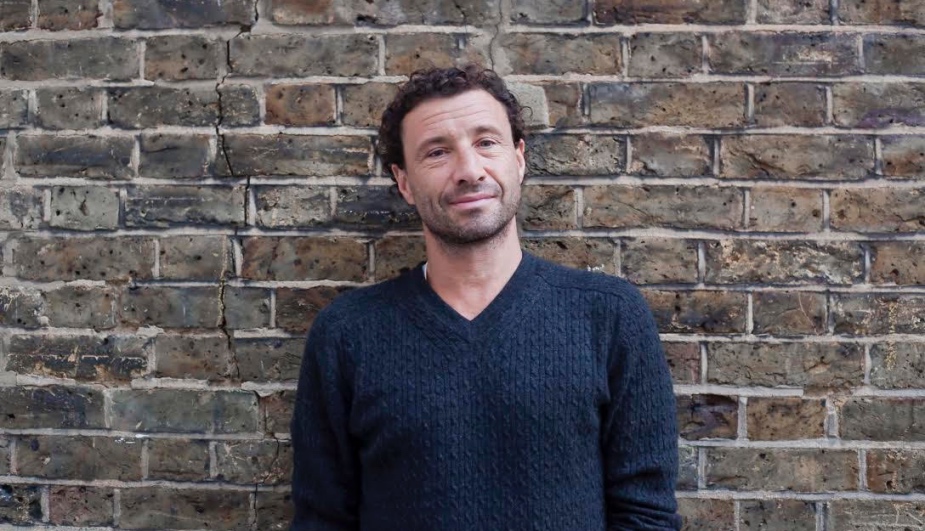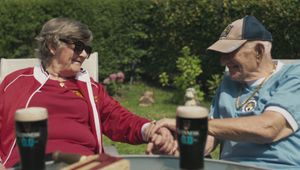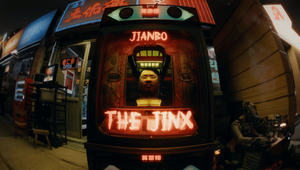
Daniel Bergmann on How Global Production is Navigating the Shifting Sands of Covid-19

Daniel Bergmann is no stranger to change. Since moving from Prague to the UK, where he founded production company Stink, he’s grown a global company that’s constantly adapting to accelerating cultural and technological evolution. But even he’d agree that the past two and a half months have been quite unlike anything he’s ever seen before.
Every business in the advertising industry has been figuring its way through the Covid-19 crisis, but for production companies it’s been a rapid, flickering strobe light of change as new solutions have popped up and been rendered non-viable in a matter of weeks, and in some cases days. Stink's approach has been a proactive one and they've drawn knowledge from across their international network. "They have had to be fearless. And the good news is that that’s the spirit of Stink. It has been electrifying.”
Looking back over the course of the Covid-19, Daniel can see distinct waves of work that have emerged as the virus spread and increasing restrictions came into place in different countries.
“If you look at the work which has been done in the past few weeks, there are definitely a few stages – and it’s also related to safety and how seriously people are taking things,” says Daniel.
“Initially the first reaction was animation. Agencies and clients have attempted to change their existing scripts but it hasn’t really worked because good quality animation takes time, it’s not weeks but potentially a month or two,” says Daniel.
Next came remote shooting – first of all filming in locations that were still open, directing remotely via a monitor hooked up to a video link. It’s something Stink had experience in the B.C. (before coronavirus) era – Nicola Winding Refn had partially directed a Nike ad for China from his base in Denmark, in collaboration with an assistant director on the ground. However, as restrictions increased and more governments opted for full or partial lockdowns, ‘remote shooting’ took on a distinctly more DIY flavour, as production companies either harnessed user-generated content or directors had direct their cast as they shot on their own smartphones.
“Nobody knew if you could deliver kit to people’s houses; in some places, unless you had secure, disinfected kit you could deliver to people’s homes the insurance wouldn’t insure you, so for a little bit it was this Zoom and user-generated situation,” says Daniel. There’s two levels – one is that you get people to film something on their phones and send it back to you and the other one is where you have a complex system of directing via Zoom or Skype Business. You have multiple screens, the director has multiple windows open and you can have a complex layout in terms of how you direct, how you communicate with the agency – you have a proper casting, you have a proper wardrobe.”
During this period, a new crew role has gained prominence – the Technical Director, who ensures that actors are properly set up, directs them in how to use and point their phones and cameras. This home-shot, phone-shot footage has popped up in markets from the UK to Ukraine. From a messaging perspective, it creates a real sense of connection with the audience and a level of authenticity previously unseen in commercials – though it’s also resulted in a couple of weeks of ads that are undeniably similar in their aesthetic.
What gets Daniel excited is the work – both created by Stink and by other production companies – that has managed to push creativity and production values. Directors and DoPs with their own cameras, drones and kit are able to shoot at home or in some places are able to get out and capture footage locally that’s inventive and beautiful. Director Saam Gabbay created an inventive short film in which he took photographs and drone shots of his friends, isolated in their homes, in order to celebrate his birthday. “It showed a different level of what you can do,” says Daniel.
Throughout, creating films using archive footage has been popular and Daniel says directors who have already got such projects on their reel have been kept busy.
Now, as some countries emerge from lock down, remote shooting is once again a viable option. “We’re coming back to where we started, which is directors directing from home on real locations with a crew – in China, Prague, I know Germany’s going to open in a few weeks’ time,” says Daniel, who mentions that Stink director Eliot Rausch is currently directing a big job for the Chinese market remotely from Los Angeles. He also reckons that if borders remain tight as countries’ internal lockdowns lift, we may see a new wave of directing talent take the spotlight. “I also think there will be a lot of chances for local directors in markets like China or Prague with the agency sitting remotely in another country.”
Finding a footing in this constantly shifting terrain is challenging, even for born-and-bred producers with problem-solving coursing through them where the rest of us have blood. Thankfully, Stink’s international network of offices, spanning everywhere from China and Japan to Russia and Brazil, has given the team a real advantage.
“It 100% helped us because we had visibility and first-hand information about what’s really happening on the ground. It wasn’t just via media or second-hand.” Daniel says that across the company, producers and MDs are constantly chatting on WhatsApp and they were hearing about the unfolding situation in China. Fortunately, he says, the nationwide lockdown happened over Chinese New Year, when many were at home with their families and loved ones.
“The second stage was the discipline and resilience - we saw if people keep a certain level of process it will gradually improve. We were hearing from our people in China and everybody was saying ‘it’s not so bad, just keep on’,” he says. Meanwhile, while Japan has only recently declared its national state of emergency, the production team in Tokyo was quick to enact health and safety measures on set. The combined experience in China and Japan helped inform shoots taking place in other markets.
“They were actually still shooting a little bit in London while China was going through this, so it gave us an idea of what safety measures to put in place. There was a logistical help, a tactical help, a confidence help,” says Daniel, who notes that now the situation is completely reversed, with shoots taking place in China.
Navigating the fluctuations on a country-by-country basis has also had an ethical dimension, notes Daniel. Sometimes sticking to the letter of the law isn’t enough – one recent shoot in Sweden was cancelled despite permits being issued. The country has been notably more relaxed than its neighbours in its regulations, and the team decided that they did not want to put crew and actors at unnecessary risk.
Looking forward, even as countries open up the impact of Covid-19 will continue to be felt by production companies. There will be challenges and even tighter budgets – but also opportunities.
“I think we will see two periods. First, lockdown will go away and you will be able to shoot it on location and in studio, but flying directors from abroad or clients from abroad will be very limited in the near future. Some remote will stay in place because clients will want to save money and not send their creatives,” says Daniel.
“I imagine this will change our business. I think the future will see lower budgets, at least initially, because clients will have lost a lot of money. And I think working from home will change our business a little bit. People will learn skills now that they will benefit from. I think there will be essentially, some positive things coming out of this, even creatively.”
In the longer term there will be even wider-ranging change. The Covid-19 pandemic is unlike a war in that all of humanity is united and Daniel hopes that, despite actors who hope to leverage division and discord, we might see a less polarised world. He predicts an appetite for humanity, hopefulness and, after time, humour. Just imagine, he jokes, what this year’s Christmas campaigns are going to look like.
And for advertising and production, he ponders that there might be a rebirth, of sorts.
“I’ve thought about it quite a bit – it’s hard to predict what comes after this, the new reality, but I think a lot of people think it’s the end. We always knew there’s been a bit of a generational change in terms of directors and production companies, we’ve seen younger people taking their place of the older generation with different behaviours and different ways of communicating and different ways of looking at creative. And also even financially, shifting from massive individual budgets for commercials, money is now invested in different ways by clients. I think this crisis is the final ‘slamming door’ over the last generation of advertising creative. What will come out of it? Different types of creative, different types of directors, different types of work in digital. It is the new era with much less of the old world left in it – this just accelerated the change.”















